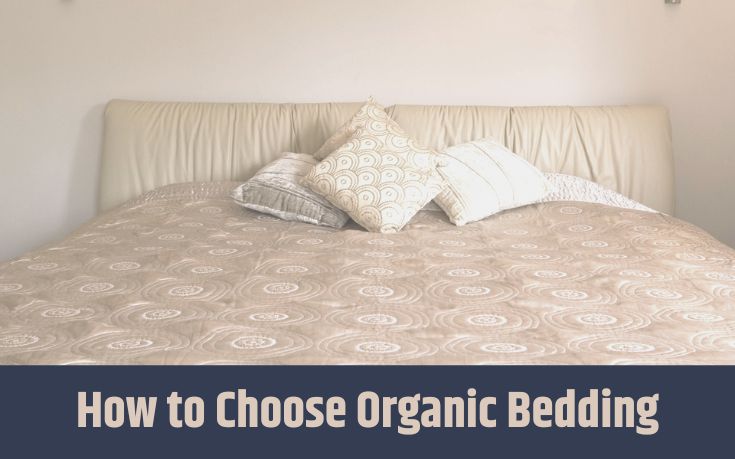Hey, Sleepyheads! Ever thought about what you sleep on? Looking for a better way to rest and ways to be easier on our planet? Think of bedding. You’re going to be spending about one-third of your life in bed, so why not make it a bit healthier and more eco-friendly? Now, let’s find out how organic bedding can revolutionize your sleeping pattern and be beneficial for the environment.
Bedding
First off, let’s discuss what is actually inside your conventional bedding. Many times, regular sheets, pillows, and mattresses will be made from synthetic materials that have been treated with chemicals. These chemicals can include formaldehyde, flame retardants, and pesticides, which can then off-gas into your home air. Long-term exposure to these chemicals has been associated with many different health problems—issues that range from simple skin irritation to respiratory problems.
Moreover, regular bedding comes at an environmental cost. Non-organic cotton farming requires volumes of pesticides and synthetic fertilizers that are washing into water sources and causing ecosystem damage. Most human-made fibers, such as polyester, have an energy-intensive manufacturing process that includes fossil fuels and thus contributes to global warming.
Why Choose Organic Bedding?
Change to organic bedding for health and conservation purposes. Organic bedding is produced from materials grown and processed free from chemicals. Organic cotton, linen, bamboo, and wool—nowadays very popular—have their advantages.
Organic cotton doesn’t contain synthetic pesticides or fertilizers and is good for your skin and breathing. Organic linen, extracted from flax plants, is hypoallergenic, and nearly as breathable.
That will help in balancing the temperature of the human body while sleeping. The same goes for the popularity of bamboo bedding with its silky softness and wonderful moisture-wicking ability; organic wool equals great temperature regulation and further self-repellence against dust mites.
Improved Quality of Sleep
The quality of your sleep can be significantly improved through the use of organic bedding. No toxins mean less in the way of allergens or irritants, and thus fewer sleep disruptions.
The authentic deal for people who seem to have overly sensitive skin or allergies, organic bedding works wonders in reducing symptoms for a much more comfortable sleeping climate.
Equally important is the natural breathability of organic materials. Organic cotton, linen, and bamboo let more air run through them, thereby keeping your body temperature stable and avoiding overheating. Fewer sweaty nights mean better rest at night.
Environmental Impact
Moving to organic bedding is one clear way of taking a strong step towards improving your environmental footprint. The health of the land, conservation of water, and biodiversity are all respected in organic farming.
Synthetic pesticides and fertilizers have been avoided in organic farming, which means better health since there is no pollution.
Yet another excellent advantage of organic bedding materials is their biodegradability, and hence they will not contribute to landfill waste at the end of their life cycles. This marks a clear, interesting contrast against synthetic materials that, in turn, take several hundred years to decompose.
Also, most organic bedding brands integrate sustainable manufacturing methods. This could mean renewable energy, less water consumption, or reduced waste generation. As such, buying from these brands encourages a cleaner, more ethical supply chain.
How to Choose Organic Bedding
Ready to make the switch? The following tips can help in choosing organic bedding that is most appropriate for your needs.
Certification Check
Look for GOTS- or this other standard, OEKO-TEX Standard 100-certified bedding. These certifications support strict environmental and social criteria for the products.
Know Your Materials
You should know the types of materials out there and what each of those materials has to offer. For instance, in case you sleep hot, then you can opt for breathability in organic linen or bamboo. In case you like coziness or warmth, prefer organic wool.
Read Reviews
Customer reviews can provide valuable insights into the comfort and durability of several products. Look for feedback from people who align with your preferences and needs.
Think About the Brand’s Values
Research sustainability and ethics a brand has for their materials and labor. Most often than not, brands with some degree of transparency over their sourcing and manufacturing process tend to be reliable in providing good quality and eco-friendly products.
Real-Life Benefits
Let’s hear from some people who made the switch. Take Lisa, who had regular skin irritations and allergies. Since using organic cotton sheets, she says she has seen a huge change for the better within the occurrences and slept much better.
There was James, who was having a hot night. He switched to organic linen bedding, which seemed to keep him cool and comfortable, improving his quality of sleep astronomically.
These real-life stories illustrate the metamorphic power of organic bedding. It is not only a healthier choice for you, but a healthier choice for the planet too.
The Bigger Picture
Switching to organic bedding is just a notch further down the lane toward living green and living conscious.
It’s making choices that benefit both you and your environment. By choosing organic, you are supporting the practices where it improves soil health, save water, and lessen the use of chemicals.
You create demand in the market, which benefits other brands by switching overlaps to greener ways of production. The more consumers reach for organic, the more affordable and available it becomes for everyone.
Final Words
Ready to go green and fuel up with organic bedding? This easy step can help you feel better, sleep better, and even help our planet.
Organic bedding creates a cleaner, more aesthetically pleasing environment in which to rest and rejuvenate, free of the chemicals and synthetics existing in traditionally made bedding.
At the same time, it adds to the good feelings about supporting sustainable farming and manufacturing methods that make less of an impact on the environment.
Keep in mind the fact that every little bit counts here. Start by switching a piece or two from your arsenal of bedding into an eco-friendly bed, and after that, go full-bore on arranging a natural sleeping setup. Your body and the Earth will thank you. Happy sleeping!





